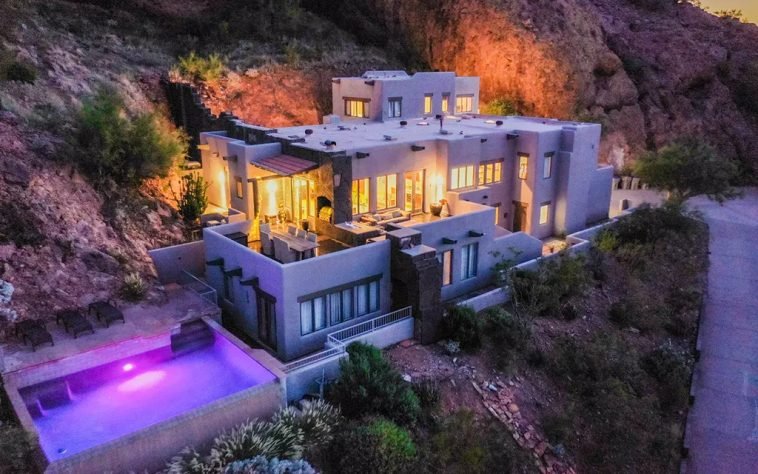Introduction.
Managing Airbnb properties for others can be a rewarding way to build a flexible career in real estate and hospitality.
With short-term rentals continuing to gain popularity, more people are investing in Airbnb properties as a source of passive income, yet many find themselves short on time to handle day-to-day tasks.
This is where a property manager steps in to handle everything from guest communication and check-ins to cleaning coordination and maintenance.
If you’re interested in starting or expanding your own Airbnb management business, here’s a detailed guide to help you dive into the world of managing Airbnb properties for others.
How Do I Manage Airbnb Properties For Others?
The role of an Airbnb property manager is multi-faceted, balancing both hospitality and operational skills to create a great guest experience.
Here’s everything you need to know about how to get started, succeed, and build a reputable business in managing short-term rental properties for others.
1. Understand What Airbnb Property Management Entails
Managing Airbnb properties involves several key tasks:
- Guest Communication: Quick and polite responses to inquiries are crucial. Most guests expect replies within an hour or two.
- Pricing Strategy: A dynamic pricing approach is vital to stay competitive. This means adjusting rates based on seasons, weekends, local events, or last-minute availability.
- Cleaning and Maintenance: Cleaning is a top priority, and a seamless routine is crucial for getting five-star reviews. Quick turnaround between guests often requires a reliable team or service.
- Marketing and Listing Optimization: Professional photos and a clear, inviting description of the property make it stand out.
- Check-ins and Check-outs: Many guests appreciate self-check-in options via keypads or lockboxes, although some prefer a personal greeting.
2. Set Up Your Business Structure
If you plan on managing multiple properties, setting up a formal business structure can be beneficial:
- Legal Requirements: Decide on a business structure (like LLC) that offers liability protection.
- Insurance: General liability insurance is essential, and it’s a good idea to carry insurance that covers damages, too.
- Property Management Agreements: An agreement outlines your services, fee structures, and responsibilities. It should cover aspects like the duration of the contract, termination terms, and the scope of work.
3. Build a Pricing Model and Service Package
Typical pricing models include:
- Commission-Based Fees: Often 10-30% of each booking’s revenue. Some Airbnb managers charge around 20% on average, with fees varying based on location and services.
- Flat Rate: This can be beneficial for properties that are consistently booked.
- Additional Fees: Cleaning, maintenance, or restocking fees can be added as extra services.
4. Marketing Your Services
Getting your first client can take effort. Effective marketing tactics for an Airbnb management business include:
- Referrals and Networking: Word-of-mouth is powerful in this field. Start by approaching local real estate investors or property owners.
- Online Presence: Create a professional website that details your services, pricing, and experience.
- Social Media: Sharing tips, showing well-managed properties, and engaging with potential clients can establish you as an expert.
5. Use Property Management Software
Property management software can streamline tasks like guest communication, calendar syncing, and price optimization. Some popular options include:
- Guesty: Ideal for managing multiple properties, including automated responses and pricing tools.
- Hostfully: Offers multi-platform syncing and a customizable welcome book for guests.
- Your Porter App: Perfect for managing smaller portfolios with calendar management and task automation.
Pros and Cons of Managing Airbnb Properties for Others
Every job has its ups and downs. Here’s what to consider if you’re thinking about Airbnb property management as a career.
Pros:
- Flexible Schedule: Often, you can set your hours, especially if using self-check-in and automation tools.
- Scalability: Starting with one property, you can grow to manage multiple properties as you gain experience.
- Strong Demand: Airbnb management continues to grow, with more property owners seeking professional help.
Cons:
- 24/7 Availability: Many managers find they need to be on call, especially for emergency issues with guests.
- High Standards: Guest satisfaction is key, and this can be challenging with difficult guests or during busy seasons.
- Fluctuating Income: Short-term rentals can be seasonal, which might impact earnings in quieter months.
FAQ: Common Questions About Managing Airbnb Properties
1. Do I need a real estate license to manage Airbnb properties?
- This depends on the location. In many areas, property managers don’t need a real estate license, but some cities or states may require it, especially if handling long-term rentals.
2. How much can I earn managing Airbnb properties?
- The income varies widely based on location, the number of properties, and your pricing model. Some managers make $1,000+ per month per property, but rates depend on the market.
3. How do I handle difficult guests or complaints?
- Respond quickly and professionally. Offer solutions within reason, such as partial refunds or a small gesture (like a complimentary wine bottle), to smooth things over when needed.
4. How many properties can I manage on my own?
- Typically, managers find 4-6 properties manageable solo, especially with automation tools. Beyond that, an assistant or additional help may be necessary.
5. What’s the best way to find my first client?
- Reach out to local real estate groups, join social media groups, or ask property-owning friends and family. Building a solid online presence also helps.
Conclusion
Managing Airbnb properties for others offers both flexibility and potential for income, but it’s also a career that requires commitment, strong communication skills, and problem-solving abilities.
With the right approach, tools, and marketing strategy, property management can be a rewarding business that helps property owners and satisfies guests.
If you’re considering diving into Airbnb property management, what’s the one aspect of managing properties that excites you the most?





GIPHY App Key not set. Please check settings